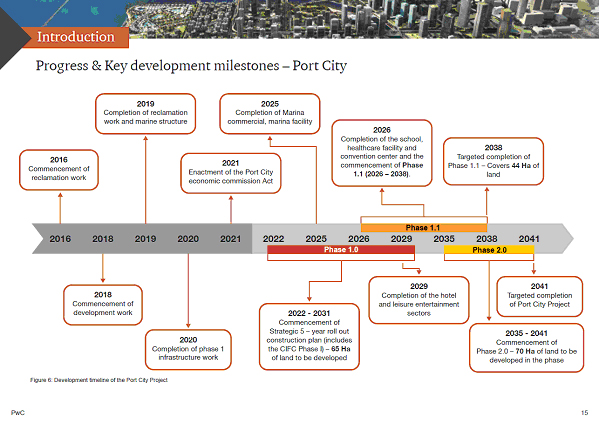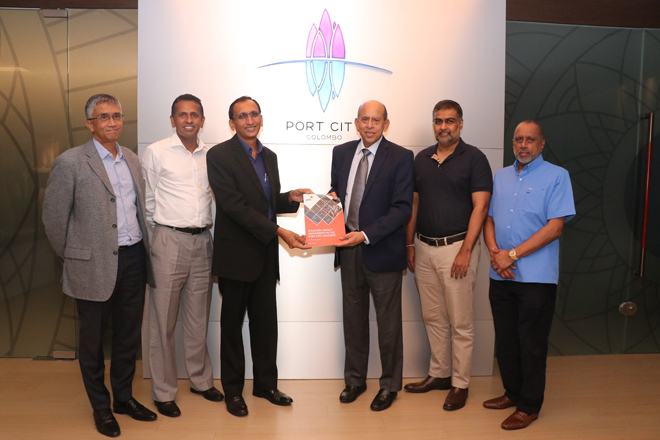PwC, on Tuesday, presented their latest assessment of the Port City’s economic impact to the Economic Commission. The assessment evaluates the potential impact of the Port City Colombo across five key macroeconomic variables: Employment, Gross Domestic Product, Foreign Direct Investment, Balance of Payments, and Government Revenue.
Having initiated the original report in early 2020, the November 2021 update explores the effect of the Special Economic Zone status conferred by way of the Colombo Port City Economic Commission Act and the “Five Year Plot Roll-out Strategy” of CHEC Port City Colombo (Pvt) Ltd – the Project Company.
The Port City is envisaged to be focused on high-value modern services such as Information & Communication Technology, maritime services, financial services, and other professional services by leveraging Sri Lanka’s strategic location amongst a fast-growing region, skilled talent pool, low-cost environment, and the ease of doing business offered by the SEZ legislation.
As an oceanfront extension of the existing Colombo Central Business District, Port City is also expected to have a strong destination appeal for city tourism. The five land plots earmarked in the Master Plan for luxury city hotels and an integrated resort could add a room inventory of ~2,900 keys to complement MICE, yachting, medical value travel, business, and leisure travelers.

Considering the mammoth scale of this urban development project, completion is expected progressively over the next 20 years attracting as much as $12.7 bn in additional investment. Providing a globally competitive business environment will be a prerequisite in attracting FDIs which could take-off the development of the Port-City (and the country) to the expected levels.
The analysis shows that Sri Lanka benefits significantly by the Port City development project provided construction and operational stages proceed as planned.

